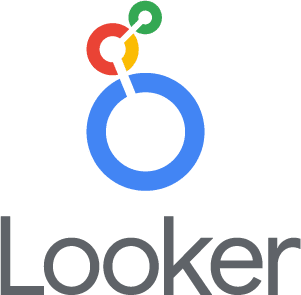The tap-looker extractor pulls data from Looker that can then be sent to a destination using a loader.
Alternate Implementations
-
Airbyte
🥉
-
Bytecode IO
- Stitch Data (default)🥈
Getting Started
Prerequisites
If you haven't already, follow the initial steps of the Getting Started guide:
Installation and configuration
-
Add the tap-looker extractor to your
project using
:meltano add -
Configure the tap-looker
settings using
:meltano config -
Test that extractor settings are valid using
:meltano config
meltano add tap-lookermeltano config tap-looker set --interactivemeltano config tap-looker testNext steps
Follow the remaining steps of the Getting Started guide:
If you run into any issues, learn how to get help.
Capabilities
The current capabilities for
tap-looker
may have been automatically set when originally added to the Hub. Please review the
capabilities when using this extractor. If you find they are out of date, please
consider updating them by making a pull request to the YAML file that defines the
capabilities for this extractor.
This plugin has the following capabilities:
- catalog
- discover
- state
You can
override these capabilities or specify additional ones
in your meltano.yml by adding the capabilities key.
Settings
The
tap-looker settings that are known to Meltano are documented below. To quickly
find the setting you're looking for, click on any setting name from the list:
You can also list these settings using
with the meltano configlist
subcommand:
meltano config tap-looker list
You can
override these settings or specify additional ones
in your meltano.yml by adding the settings key.
Please consider adding any settings you have defined locally to this definition on MeltanoHub by making a pull request to the YAML file that defines the settings for this plugin.
API Port (api_port)
-
Environment variable:
TAP_LOOKER_API_PORT
The API port for the Looker instance. Uusually 19999, unless you are hosting Looker internally and are using a different port for the API.
Configure this setting directly using the following Meltano command:
meltano config tap-looker set api_port [value]Client ID (client_id)
-
Environment variable:
TAP_LOOKER_CLIENT_ID
Your API3 Keys client ID.
Configure this setting directly using the following Meltano command:
meltano config tap-looker set client_id [value]Client Secret (client_secret)
-
Environment variable:
TAP_LOOKER_CLIENT_SECRET
Your API3 Keys client secret.
Configure this setting directly using the following Meltano command:
meltano config tap-looker set client_secret [value]Domain (domain)
-
Environment variable:
TAP_LOOKER_DOMAIN
Is usually looker.com, unless you have your own white-labeled URL.
Configure this setting directly using the following Meltano command:
meltano config tap-looker set domain [value]Start Date (start_date)
-
Environment variable:
TAP_LOOKER_START_DATE
Currently not used because the Looker API doesnt support query filtering, sorting, pagination. Determines how much historical data will be extracted. Please be aware that the larger the time period and amount of data, the longer the initial extraction can be expected to take.
Configure this setting directly using the following Meltano command:
meltano config tap-looker set start_date [value]Subdomain (subdomain)
-
Environment variable:
TAP_LOOKER_SUBDOMAIN
The leading part of Looker URL before .looker.com; https://
Configure this setting directly using the following Meltano command:
meltano config tap-looker set subdomain [value]User Agent (user_agent)
-
Environment variable:
TAP_LOOKER_USER_AGENT
The user agent to send with requests.
Configure this setting directly using the following Meltano command:
meltano config tap-looker set user_agent [value]Additional Notes
This tap uses Looker's API v3.1 https://developers.looker.com/api/explorer/3.1.
- All endpoints replicate FULL_TABLE (ALL records, every time). Currently, the Looker API does not support paginating, sorting, filtering, or providing audit fields (like created/modified datetimes).
- Primary Key field(s): Almost all endpoint have an id primary key
- lookml_models, models, git_branches use a combination key of name and project_name
- git_branches use a combination key of name and project_id
- project_files use id and project_id
- connections use name
- user_attribute_values use user_id and user_attribute_id
- group_attribute_values use group_id and attribute_value_id
- Transformations: Remove can nodes; IDs to string; fix JSON validation errors (datatypes)
- ALL JSON schema generated from Looker API Swagger Definitions
Something missing?
This page is generated from a YAML file that you can contribute changes to.
Edit it on GitHub!Looking for help?
#plugins-general













-1-c0c0c4)




